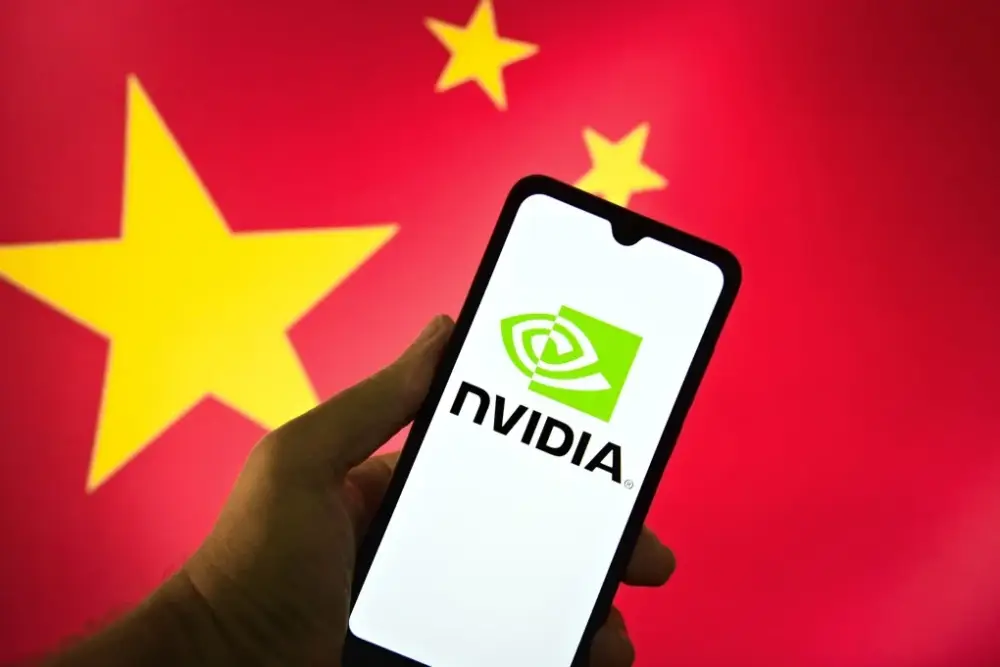
Nvidia phản công Huawei: tung chip B30 siêu mạnh cho Trung Quốc, sản xuất hơn 1 triệu chiếc năm 2025
-
Nvidia đang phát triển chip AI B30 mới dành riêng cho thị trường Trung Quốc nhằm tuân thủ các quy định xuất khẩu từ Mỹ và duy trì thị phần tại nền kinh tế lớn thứ hai thế giới.
-
Theo trang The Information, B30 sẽ có khả năng liên kết nhiều đơn vị để tạo cụm máy tính hiệu năng cao (HPC clusters), cho phép khai thác sức mạnh tương tự các hệ thống như NVL72.
-
Công ty dự kiến sản xuất hơn 1 triệu đơn vị chip B30 trong năm 2025, cho thấy mức độ đầu tư lớn để duy trì vị thế trước sức ép ngày càng tăng từ Huawei và các hãng Trung Quốc.
-
Dòng chip này được cho là dựa trên nền tảng Blackwell, nền tảng GPU thế hệ mới nhất mà Nvidia công bố năm ngoái.
-
CEO Jensen Huang xác nhận đang “cân nhắc” phát triển chip cho Trung Quốc trong buổi họp cổ đông, tuy chưa công bố chi tiết vào thời điểm đó.
-
Hành động này diễn ra sau khi chính phủ Mỹ áp dụng lệnh cấm xuất khẩu H20, dòng chip AI từng được thiết kế riêng cho thị trường Trung Quốc, khiến Nvidia mất khoảng 8 tỷ USD doanh thu quý II và 4,5 tỷ USD tồn kho quý I.
-
Mỹ thông báo ngày 9/4 rằng H20 sẽ cần giấy phép xuất khẩu và đến ngày 14/4, xác nhận các quy định này sẽ được duy trì vô thời hạn, khiến Nvidia buộc phải chuyển hướng.
-
Jensen Huang nhiều lần nhấn mạnh rằng Trung Quốc chiếm 14% doanh thu toàn cầu của Nvidia năm ngoái, và nếu các hạn chế tiếp tục, điều đó có thể giúp Huawei vươn lên mạnh mẽ.
-
Huawei hiện đang mở rộng kiến trúc tính toán hiệu năng cao Supernode 384 dựa trên chip AI Ascend, được xem là đối trọng với NVL72 của Nvidia trong việc giảm nghẽn cổ chai tại trung tâm dữ liệu.
-
Trong cuộc phỏng vấn gần đây, Jensen Huang chỉ trích việc Mỹ cố cắt đứt AI Trung Quốc là “thiếu hiểu biết”, và cảnh báo điều này sẽ thúc đẩy Trung Quốc xây dựng hệ sinh thái độc lập không có Mỹ.
-
Chính quyền Mỹ gần đây còn tuyên bố việc sử dụng chip Huawei Ascend ở bất kỳ đâu trên thế giới đều vi phạm lệnh kiểm soát xuất khẩu, cho thấy sự lo ngại ngày càng lớn về sức mạnh công nghệ của Trung Quốc.
📌 Để tránh mất thị phần vào tay Huawei, Nvidia sẽ tung ra chip AI B30 dành riêng cho Trung Quốc, có khả năng kết nối cụm siêu máy tính, dự kiến sản xuất trên 1 triệu chip trong năm 2025. Việc này phản ánh nỗ lực duy trì vị thế tại thị trường chiếm 14% doanh thu Nvidia, bất chấp các lệnh cấm từ Mỹ đang khiến hãng chịu thiệt hại hàng tỷ USD và tạo cơ hội lớn cho Huawei tăng tốc.
https://www.scmp.com/tech/big-tech/article/3312779/nvidia-builds-new-ai-chip-china-powerful-computing-cluster-capabilities-report
Nvidia builds new AI chip for China with powerful computing cluster capabilities: report
Thảo luận
Follow Us
Tin phổ biến



